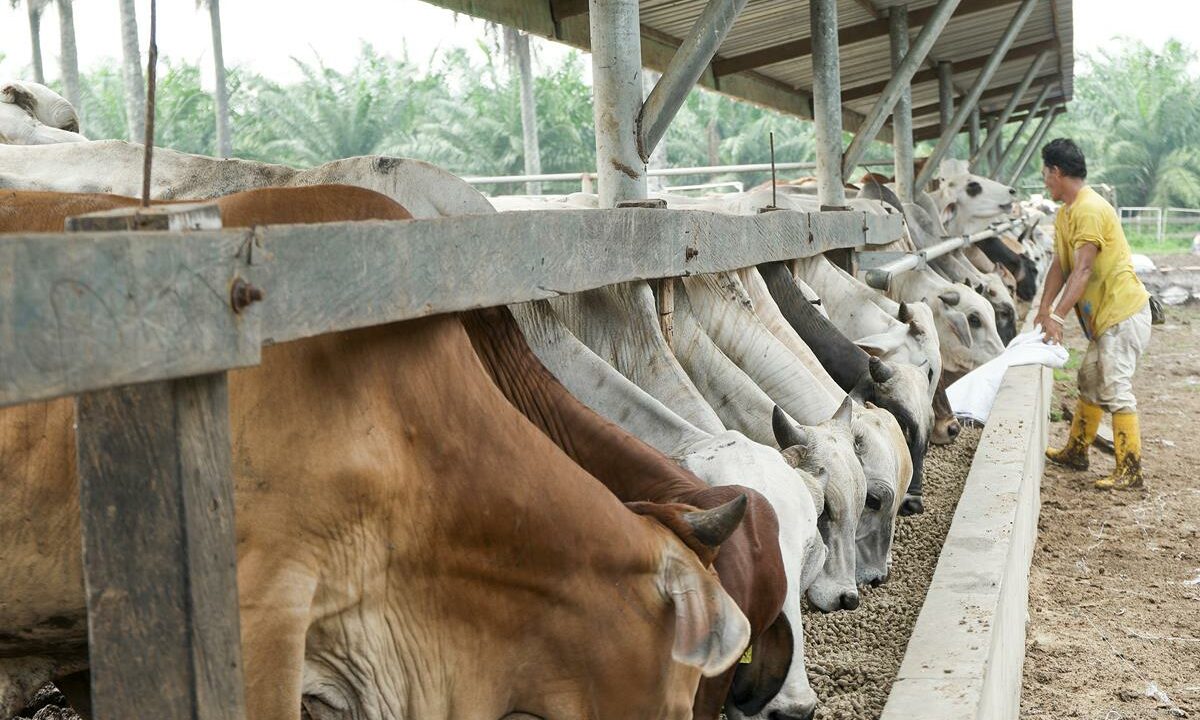The president of European farm organisation, Cogeca, does not believe that the controversial EU-Mercosur free trade agreement (FTA) will be ratified this year.
Speaking through a translator during a joint Copa-Cogeca press conference this morning (Tuesday, May 2), Ramon Armengol said that there seems to be “political will” within the EU to move forward with the deal.
“However, we’re concerned because there are many topics yet to be discussed, yet to be agreed upon,” he added.
In March, European Commissioner for Trade Valdis Dombrovskis expressed hope that the deal could be progressed in the coming months.
EU-Mercosur deal
The EU-Mercosur deal was agreed in 2019 but its ratification has been stalled due to concerns raised by member states, including Ireland.
These concerns include deforestation in Brazil, the potential impact of imports on the EU beef market and the imposition of stricter standards on EU farmers compared to primary producers in the Mercosur countries of Argentina, Brazil, Paraguay and Uruguay.
The deal would allow for an additional 99,000t of beef from the South America trade association to enter the EU tariff-free.
Spain, which is due to take over the presidency of the EU in the second half of 2023, has recently renewed its alliance with Brazil as it seeks to complete the FTA.
The Spanish presidency is set to coincide with the Brazilian presidency of the Mercosur bloc.
Farmers
However, the Cogeca president has said that before the deal is ratified issues that remain unaddressed will need to be dealt with.
“The differences between the realities in both blocs are huge and so we need to properly sit down at the table and discuss it because this is a sensitive issue,” Ramon Armengol said.
“It won’t be ratified this year, I don’t believe. There are a lot of issues to be discussed.”
“There’s certainly a political willingness from various countries to make sure that the links between Latin America and Europe become closer and more stable, so hopefully the political conditions might be better now or perhaps better in three years, who knows, but I think it’s a good time to negotiate,” he told Agriland.
The Spanish farmer added that the negotiation process would have to take reciprocity, environmental concerns and different practices and standards into account.

The president of Copa, Christiane Lambert added that the EU-Mercosur deal would be difficult to justify for European farmers.
“How can we explain that the EU is taking decisions which is leading to a drop in production in Europe and is opening up its borders to products that do not comply with the same rules at the same time.
“This beggars belief, it’s impossible to explain to farmers. But it also affects consumers, they want us to have greener agriculture, cleaner agriculture, more animal welfare aspects in agriculture.
“We can’t keep piling up the requirements for our farmers, and then open up the borders to products where we know that they don’t adhere to the same rules,” the French farmer said.
Lambert said that EU leaders “have to wake up and smell the coffee”.
The Copa president stressed the importance of the agricultural sector in Europe for rural areas and biodiversity.
“This also has to be recognised in trade negotiations. Once again agriculture is the adjustment variable for us to be able to sell cars and technology. No, we no longer want to serve as an adjustment variable,” she said.
